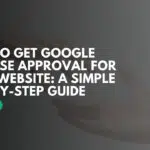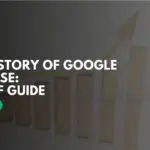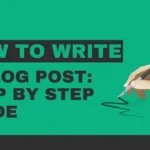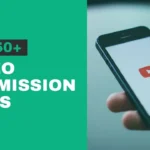In today’s digital age, Search Engine Optimization (SEO) has become an essential element for businesses to succeed online. One of the critical components of SEO is link building, commonly known as Off-page SEO. Link building is the practice of acquiring high-quality links from other websites to improve the search engine ranking of your website.
Off-page SEO is crucial as it helps search engines understand the relevance and authority of your website in a particular niche. However, link-building can be pretty challenging, especially for beginners.
In this blog post, we will discuss some of the best off-Page SEO strategies that beginners can use in 2023 to build high-quality backlinks and improve their website’s search engine ranking.
What is Off-Page SEO?
Off-page SEO, also referred to as off-site SEO, describes the steps you take away from your website to raise your search engine ranking.
Creating backlinks from other websites, using social media marketing, and other outside marketing initiatives are all examples of this.
Why is off-page SEO important for ranking?
Improving your website’s rankings requires networking with high-authority websites and platforms. Backlinks, or simply links pointing to your website from other websites, are a way to accomplish this.
They demonstrate to search engine crawlers that your content is dependable and trustworthy a clear indication of their confidence in the caliber of your enterprise. As a result, your website will rank higher in SERPs, making it simpler for users to find it when they search for pertinent terms.
Essential Off-Page SEO Strategies for Beginners to Enhance SEO Activity
Welcome to the world of off-page SEO strategies for beginners! When it comes to optimizing your website for search engines, it’s not just about on-page elements.
Off-page SEO plays a crucial role in boosting your website’s visibility and driving organic traffic from external sources. In this guide, I will share essential off-page SEO strategies that you can implement as a beginner to enhance your SEO activity.
From link building to social media engagement and content marketing, we’ll delve into each aspect to help you understand their significance in improving your website’s search engine rankings.
So, let’s embark on this journey and discover how these off-page optimization strategies can elevate your SEO game.
Off-page is not just about creating backlinks. It’s more than that. It helps to drive traffic from outside to your website.
Let’s extensively delve into the three aspects mentioned above while considering the off-page SEO strategies.
Off-Page SEO Strategies for Beginner: Step By Step Guide
Let’s dive into the world of off-page SEO strategies specially designed for beginners who want to start their career in SEO or blogging.
1. Guest Blogging
Writing guest posts for other websites in your niche is an excellent method for building backlinks and driving referral traffic to your website. You can discover websites that accept guest posts by utilizing Google search or specialized tools like Ahrefs or SEMrush. Additionally, feel free to explore our curated list of exceptional guest posting sites.
2. PR(Public Relations)
PR, or public relations, in SEO, refers to building relationships with media outlets, journalists, bloggers, and influencers to gain exposure and increase visibility. This involves creating and distributing press releases, securing media coverage, and building relationships to gain backlinks. Effective PR can improve search engine rankings, and build brand awareness, credibility, and trust with the target audience. PR in SEO should be approached with a long-term strategy in mind and ethical and transparent practices should be maintained to avoid penalties.
3. Social media Engagement
Social media brand awareness can be greatly boosted with the help of social media. You can communicate with people who are interested in your content, goods, or services using platforms like Twitter, Facebook, and Instagram.
In addition to posting pertinent content, you can also share deals and discounts, answer queries, and deal with customer service.
Through this activity, users are more likely to interact with and share your content on their social networks, resulting in a priceless backlink to your website that greatly increases its authority.
4. Skyscraper Technique
This involves finding popular content in your niche, creating better and more comprehensive content, and reaching out to websites linked to the original content to link to your new content.
To find popular content in your niche, you can use a variety of tools, such as Google Trends, BuzzSumo, and Ahrefs. Once you’ve found some popular content, take a look at it and see what makes it so popular. Is it the writing style? The visuals?
The information being presented? Once you know what makes the content popular, you can start to create your own content that is even better.
When creating your content, make sure it is well-written, informative, and visually appealing. You should also make sure it is comprehensive, covering all aspects of the topic.
Once you have created your content, reach out to the websites that linked to the original content and ask them to link to your new content instead. This will help you to drive traffic to your website and improve your search engine ranking.
5. Resource Link
Resource links are backlinks that point to informative and valuable content on a webpage, such as blog posts or infographics.
Resource link building involves reaching out to high-quality websites related to the content and requesting a link.
It can improve search engine rankings and increase website traffic but should be done in a natural and ethical way to avoid penalties.
6. Business Directory Submission/Citations
Submitting your website to relevant directories can help build backlinks and improve your website’s visibility in search engines. Backlinks are links from other websites to your website.
They are important because they help search engines determine how relevant your website is to a particular search query. When you submit your website to directories, you are essentially asking other websites to link to your website.
This can help you build backlinks and improve your website’s visibility in search engines.
However, it is important to submit your website to relevant directories. This means submitting your website to directories that are related to your website’s content.
Submitting your website to irrelevant directories will not help you build backlinks or improve your website’s visibility in search engines.
In addition to submitting your website to directories, you can also build backlinks by creating high-quality content, participating in online forums and communities, and guest blogging on other websites.
7. Broken Link Building
This involves finding broken links on other websites and reaching out to webmasters to suggest replacing them with your relevant content. You can use tools like Check My Links or Broken Link Checker to find broken links.
8. Influencer Marketing
Leveraging the power of influencers can propel your Off-Page SEO efforts to new heights. Collaborating with influencers who have a substantial following in your industry can help you reach a wider audience and gain valuable exposure.
When influencers mention or endorse your website, it increases your brand’s credibility, leading to more organic traffic and enhanced search engine rankings.
9. Article Submission
Article submission is the process of submitting written content, such as articles, to various online or offline platforms for publication or consideration. It involves following platform-specific guidelines and requirements, such as formatting and word count and may include a review process with feedback from editors.
The goal of article submission varies but can include establishing oneself as an expert, promoting a business, or sharing insights with a wider audience. Successful article submissions can result in publication, exposure, and recognition for the author.
10. Infographic Submission
Infographic submission is the act of sharing visually appealing and informative graphics, known as infographics, on various online platforms such as social media, blogs, websites, or directories. Infographics combine images, text, and data to convey complex information in an easy-to-understand format.
The benefits of infographic submission include increased engagement, social shares, and website traffic. Following specific size, format, and content guidelines can increase the chances of successful submission and meeting.
11. PDF/PPT Submission
PDF Submission or PPT submission is the act of sharing PDF or PowerPoint files on online platforms such as websites or document-sharing sites. These files can include informative content such as research papers or presentations.
The benefits include increased visibility, brand recognition, and website traffic. Following specific file size, format, and content guidelines can increase the chances of successful submission and engagement.
12. Forum Participation
Forum participation is the act of engaging with online forums by posting comments, asking questions, or sharing insights and experiences with others. It involves finding relevant forums, signing up for an account, and following guidelines.
The benefits include building relationships, networking, and learning from others. Successful participation can expand knowledge and build a reputation as an expert in a field.
13. Video Marketing
Video marketing is booming these days. People want to visualize whatever they are consuming. Video submission is the act of sharing video content on various online platforms, such as YouTube or social media.
The process involves creating the video, uploading it to online platforms, and providing a brief description or caption. The benefits include increased engagement, social shares, and website traffic.
Following specific guidelines for length, format, and content can increase the chances of successful submission and engagement.
14. Social Bookmarking
Sharing your content on social bookmarking sites like Reddit, StumbleUpon, or Digg can help drive traffic and backlinks to your website. This is because these sites are popular destinations for people who are looking for new and interesting content to read.
When you share your content on these sites, it will be exposed to a large audience of potential readers. If your content is high-quality and relevant to the interests of the site’s users, they may click through to your website to read more.
This can help to increase your website’s traffic and improve its search engine ranking. Additionally, when you share your content on social bookmarking sites, other users may “bookmark” it, which means that they will save it to their own personal collection of websites.
This can also help to drive traffic to your website, as other users may click through to your site when they are looking for information on the topic that you have written about.
15. Link Reclamation
This involves finding mentions of your brand or website online that do not include a link and contacting the webmasters of those websites to request that they add a link to your website. This is a great way to get more traffic to your website and improve your search engine ranking.
It can be a time-consuming process, but it can be very effective. There are a number of tools that can help you find mentions of your brand or website online, such as Google Alerts and SEMrush.
Once you have found some potential opportunities, you can reach out to the webmasters and ask them to add a link to your website. Be sure to be polite and professional in your requests, and provide the webmasters with a reason why they should add a link to your website.
16. Links Exchange
Links exchange is an SEO tactic where two websites agree to link to each other’s pages, called reciprocal linking. This practice is done to increase the number of backlinks and improve search engine rankings.
However, excessive link exchange is considered a black hat tactic. When done in moderation and with relevance, exchanging links with relevant sites can be beneficial for both parties, driving targeted traffic and establishing authority.
17. Content Marketing
Remember, link-building should always be done naturally and ethically to avoid being penalized by search engines.
Creating high-quality content that is relevant and beneficial to your target audience might help your website gain natural backlinks.
You may expand the reach and visibility of your material by sharing it on social media and other online platforms, which can lead to increased visitors and higher search engine rankings.
18. Online Reviews and Testimonials
Positive online reviews and testimonials are a testament to your website’s quality and reliability. Encourage satisfied customers to leave reviews on platforms like Google My Business, Yelp, and Trustpilot.
These reviews not only build trust with potential customers but also send positive signals to search engines, boosting your website’s visibility and search engine rankings.
Mistakes to avoid during link building
A crucial component of SEO is link building, which entails encouraging other websites to link back to your website. While link-building can improve your website’s position in search engine results, there are a few pitfalls to watch out for to ensure your link-building efforts are successful and don’t lower your website’s ranking. Here are some errors to avoid when building links:
- Over-optimizing anchor text: Search engines may detect attempts to manipulate rankings if you use the exact keyword-rich anchor text repeatedly, which may lead to penalties. Use natural language and a variety of anchor text instead.
- Getting links from sites of poor quality: Your website’s ranking may suffer if it receives links from Spammy or low-quality websites. Get links from trusted, high-quality websites as a priority.
- Having an undiversified link profile: Your website’s authority and ranking can be increased with a diverse link profile that includes links from various websites, including blogs, news websites, and directories.
- Not paying attention to relevance: Getting links from unrelated websites can lower the ranking of your website. Get links from websites that are pertinent to your industry or niche as your primary goal.
- Ignoring social media: Link building can also involve social media posts. To gain a following and improve your chances of obtaining links, share your content on social media and interact with your followers.
- Buying links: Purchasing links is against Google’s policies and can get your website penalized or even completely removed from search engine results.
- Ignoring internal links: For SEO, internal linking can be crucial as well. To enhance user experience and aid search engines in understanding your website’s structure, be sure to link to other pertinent pages on your website.
Conclusion
Link building and other off-page SEO strategies are fundamental for increasing your website’s search engine ranking and increasing traffic. As a beginner, it’s important to focus on constructing trust-worthy backlinks from authoritative websites and to diversify your off-page SEO efforts to lessen reliance on any one method.
Additionally, spending money on social media marketing, guest blogging, and other outside marketing initiatives can support the development of your brand and help your website become recognized as an authority in its field.
Off-page SEO is important, but On-page SEO and technical SEO are more important for beginners, as most people focus on link building rather than quality content.












Your article helped me a lot, is there any more related content? Thanks!